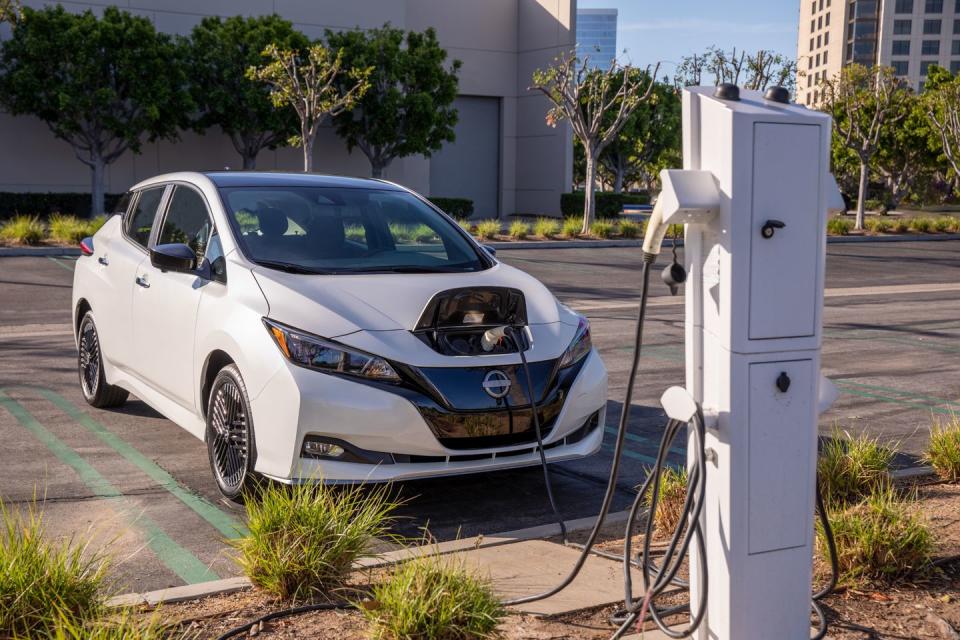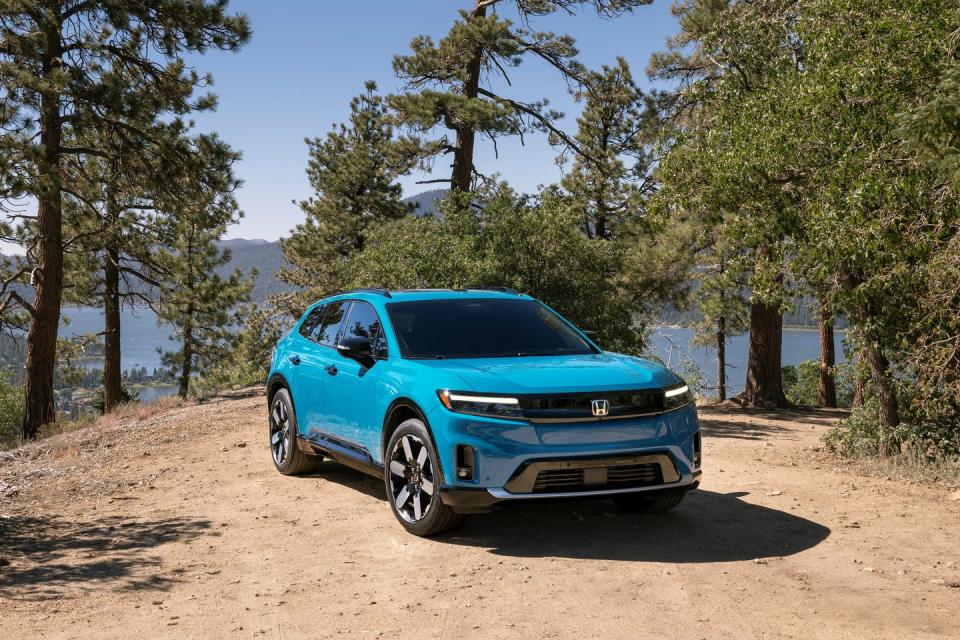Nissan, Honda Join Forces to Compete in Global EV Market

With strong competition from brands like Tesla and BYD on the horizon, Nissan and Honda are joining forces to have a fighting chance in the EV market.
Aimed at cutting development costs, Nissan and Honda are working out the details of the non-binding joint agreement, with the results aimed at the Japanese domestic market and beyond.
Honda was at the forefront with the Insight hybrid and Nissan later on with the Leaf EV, but lately both manufacturers have relied on outdated technology and borrowed EV platforms.
After pioneering electrified vehicles years ago, both Nissan and Honda have fallen well behind when it comes to proper battery-electric models. While Nissan's Leaf EV suffers from an old platform and Ariya sales continue at a crawl, Honda isn't doing much better, just releasing its first BEV, the Prologue, earlier this year.
But it wasn't always this way. From the original Nissan Leaf to the hyper-miling special Honda Insight, alternative means of propulsion have long been important to both brands. Now, the rival manufacturers are teaming up to have a better shot at EV success.

Specifically, both manufacturers have issued statements in support of a strategic partnership focused on producing key components for electric vehicles. Joint investments in artificial intelligence have also been proposed, as the Japanese manufacturers prepare to challenge brands like BYD and Tesla.
"It is important to prepare for the increasing pace of transformation in mobility in the mid-to-long-term, and it is significant that we have reached this agreement based on a mutual understanding that Honda and Nissan face common challenges," said Makoto Uchida, President and CEO of Nissan Motor Company.
What kind of challenges is Mr. Uchida talking about? As the brand continues to sell the legacy Leaf, the electric hatchback doesn't really stack up to its modern competitors.
Nissan's flagship EV, the Ariya, is struggling to gain traction as well. With 13,464 deliveries in 2023, last year's pricing scale was largely to blame, with a starting price of $44,580 for a mere 216 miles of range.
However, in acknowledging its faults, Nissan just announced price cuts for the Ariya lineup as a whole. The base Ariya is benefiting from a price cut of $3600, while upper trim levels are shaving off as much as $6000. Similarly, the longest-range Ariya is now down to a starting price of $42,580.
Honda has issues, too. The automaker has yet to introduce its own EV platform, instead relying on General Motors' slow-to-market, buggy Ultium platform for its flagship Prologue EV and Acura ZDX sibling model.
While there is a proprietary, electric Honda platform in the works (known as the e:Architecture), we won't see models built on it until at least next year.
"In this period of once-in-a-century transformation in the automotive industry, we will examine the potential for partnership between Nissan and Honda," explained Toshihiro Mibe, Honda Director, President, and Representative Executive Officer.

"Our study criteria will be whether the synergy of the technologies and knowledge that our companies have cultivated will enable us to become industry leaders by creating new value for the automotive industry."
Beyond fortifying supply chains and collaborating on specific EV componentry, Nissan and Honda say they share a goal of reducing traffic-accident fatalities to zero. Both Nissan and Honda are exploring enhanced advanced driver-assistance systems and autonomous driving programs, with Nissan's system scoring well in the IIHS's newest test.
From a business perspective, this tying of the knot is more symbolic than anything, as the joint memorandum is non-binding and no capital has been exchanged between the brands.
In a press briefing with Reuters, executives from Honda and Nissan acknowledged the strong pressure to be in a competitive position by 2030, largely in relation to the cost-effectiveness of both brands.
"We cannot win the competition as long as we stick to conventional wisdom and a traditional approach," Nissan's Uchida told the media.
With both executives expressing openness to other partners joining in, should Toyota try to join this alliance? Why or why not? Please share your thoughts below.

 Yahoo Autos
Yahoo Autos 